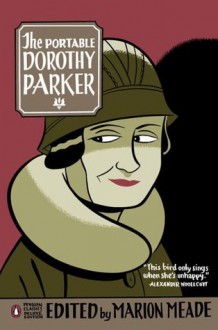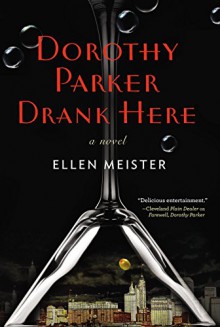
Schonungslos und messerscharf geht Dorothy Parker die Frauen an. Sie erzählt in zahlreichen Kurzgeschichten wie es der holden Weiblichkeit in der Großstadt der 1920er und 30er ergeht.
Es ist immer schwierig, eine Rezension zu einer Kurzgeschichtensammlung zu schreiben. In diesem Fall ist es unmöglich jeder Geschichte an sich gerecht zu werden. Insgesamt werden in "New Yorker Geschichten" dreißig Kurzgeschichten von Dorothy Parker zusammengefasst. Verbindende Thematik dieser Geschichten ist die holde Weiblichkeit, die in vielen Facetten zu tragen kommt.
In erster Linie hat es Dorothy Parker auf die verwöhnten Damen abgesehen. Mit äußerst spitzer Zunge rechnet sie mit den Frauen der New Yorker Gesellschaft ab, die sich mit dem Chamagnerglas in der rechten Hand von einem Herren zum nächsten schwingen, um dem Zwang einer Berufstätigkeit zu entgehen.
Oberflächlich betrachtet könnte man die Autorin fast boshaft nennen, so wie sie das Leben dieser Frauen beschreibt. Allerdings prangert sie die Abhängigkeit der Frauen vom männlichen Geschlecht an. Sie zeigt, wie eingesperrt - egal ob in der Ehe oder in der vom Geliebten finanzierten Wohnung - viele Damen sind.
"Wenn das nicht die Musterfrau gibt! Immer tun, was irgendwer anders will, ob's dir passt oder nicht. Und nie fähig, mal eine eigene Idee auch nur zu murmeln." (S. 155)
Es sind dreißig Geschichten über Geliebte, Ehefrauen und solche, die es werden wollen, schöne Mädchen und gediegene Damen - die von einer Abendveranstaltung zur nächsten hetzen.
Mir haben Dorothy Parkers "New Yorker Geschichten" gut gefallen. Manche Geschichten haben mich mehr inspiriert als andre, was bei diesem Umfang bestimmt der Regel entspricht.
Berührt hat mich, dass die Autorin zeigt, wie sehr Frauen für ihre Unabhängigkeit kämpfen müssen, wie rasch aus einer sanften Liebe Abhängigkeit wird, und wie boshaft das weibliche Geschlecht oft gegenseitig zueinander ist.
Parkers Schreibstil empfinde ich als wohlgeformt, auf elegante Art provokant und manchmal ein bisschen anzüglich. Sie überzeugt durch einen klaren Blick, ihre schneidende Zunge und eine faszinierende Boshaftigkeit, die sie meist durch das Ende der einzelnen Geschichten entschärft.
Meiner Meinung nach hat Dorothy Parker eine Sammlung vollendeter Boshaftigkeit geschaffen, die mit den Frauen abrechnet und den Männern die Rechnung präsentiert.
„New Yorker Geschichten“ ist für Leser, die sich für Frauen der gehobeneren Gesellschaft der 1920er- und 30er-Jahre interessieren und Feminismus auf boshaft-elegantem Niveau erlesen wollen.

 Log in with Facebook
Log in with Facebook 








